Movie review: 'Aristotle and Dante' a poignant tale of LGBTQ friendship
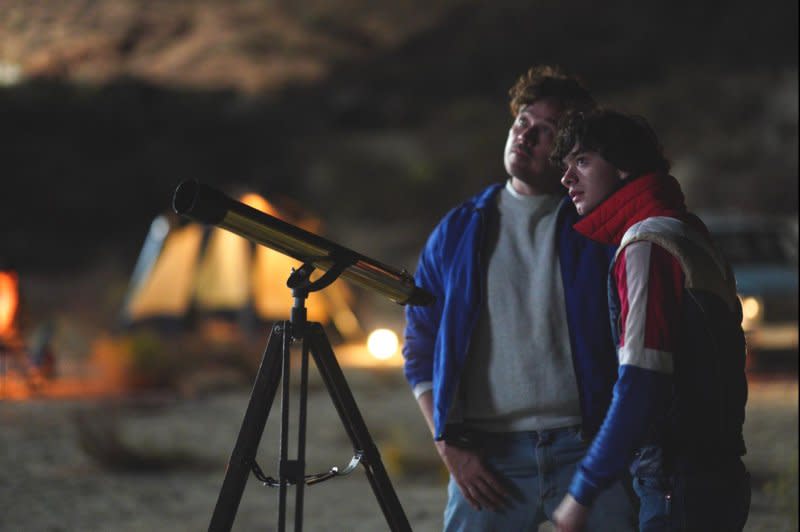
- Oops!Something went wrong.Please try again later.
LOS ANGELES, Sept. 5 (UPI) -- Aristotle and Dante Discover the Secrets of the Universe, in theaters Friday, is a moving story about young men learning who they are and struggling with that journey. Based on the Benjamin Alire Sáenz novel, writer-director Aitch Alberto's film is specific and relatable.
In summer 1987, in El Paso, Texas, teenager Aristotle (Max Pelayo) meets Dante (Reese Gonzales) at the swimming pool. Their friendship blossoms until Dante has to move to Chicago for his father's (Kevin Alejandro) teaching job.
Aristotle and Dante write letters to each other through which they explore adjustments to high school socializing and developing sexuality. The film remains in Aristotle's perspective, showing his life and only hearing about Dante's in letters read in voiceover.
There's already a sense that Aristotle and Dante are more than friends in the beginning. Every time a touch lingers, the performances indicate that at least one party is stifling unspoken feelings.
The story presents the complexities of coming out. It's not only about acceptance of oneself or others, but actually figuring out how to have relationships with emerging sexual preferences.
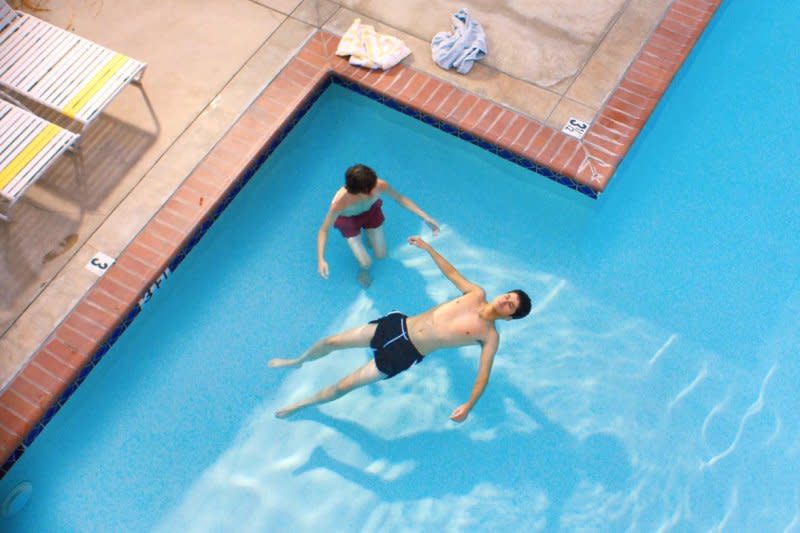
Would the friend in love really be able to settle for platonic friendship? If they experiment and his friend still doesn't come out, how would he live with that disappointment?
Would a platonic straight friend really be comfortable with a buddy pining for him, a teenage male no less? Or, is he just repressing his true desires?
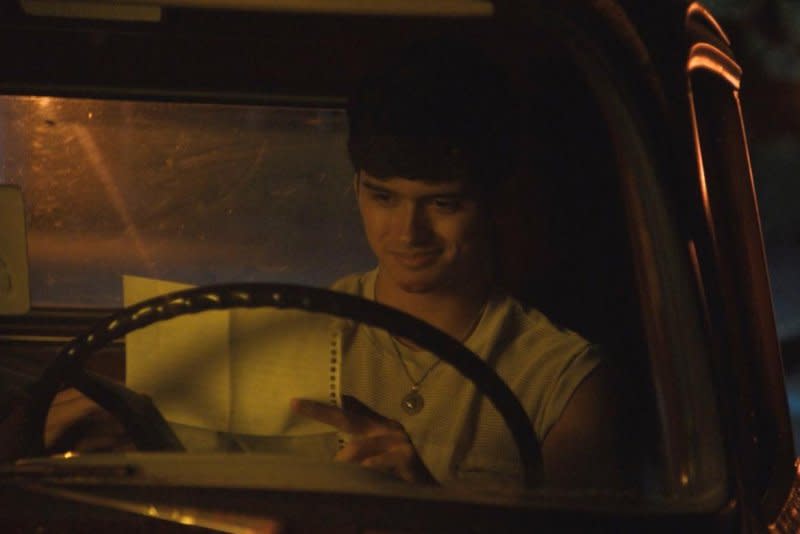
Any permutation of those scenarios would be difficult for anybody, on top of all the other challenges that come with growing up. But, this is the story of both Aristotle and Dante figuring out how to be.
With both coming from Mexican families, the culture plays a role in their understanding of relationships, though the film ultimately portrays two sets of supportive families.
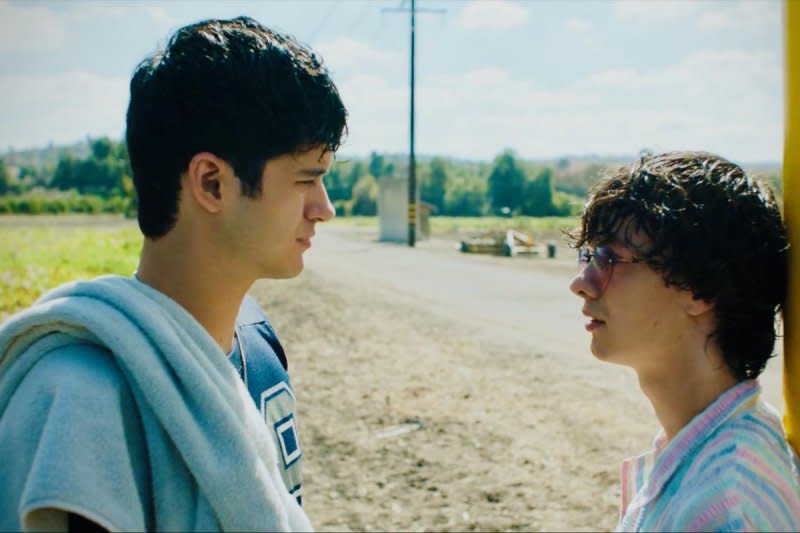
The characters face the reality of homophobic violence, which unfortunately has not gone away since 1987. There also is news coverage of AIDS in the background, establishing the public struggle of the gay community in that era.
The film gets dark and intense with regard to violence and teenage rebellion, though remains PG-13. That means Aristotle and Dante say "freaking" instead of the F word.
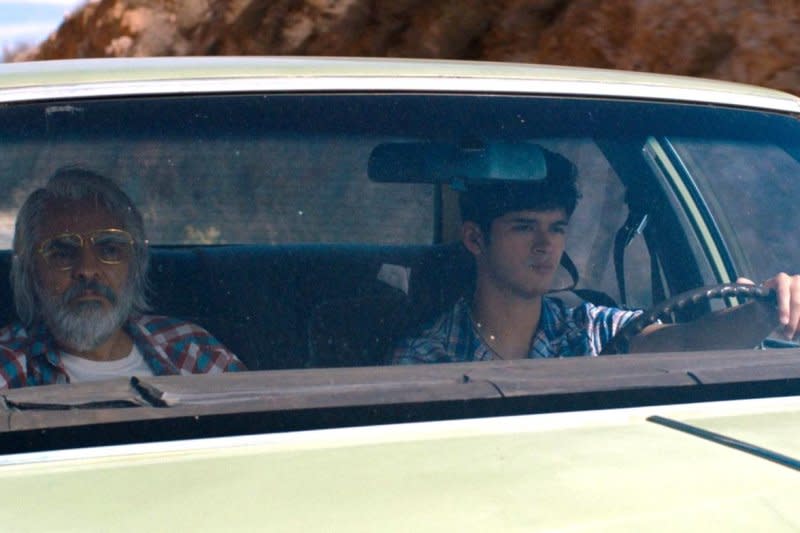
That language may be sanitized, but it's more important that the film can portray the complexities of their relationship. Had it used R-rated language, it would exclude the very audience the film intends to reach.
It's not only for teenagers though. Anyone can look back at their own friendships, whether those relationships may have gone through such monumental changes.
Actual movies of the 1980s were not as inclusive of LGBTQ characters, and many favorites, unfortunately, still include homophobic slurs. The 1987 setting is necessary for the letter-writing part of the story, because many people stopped writing letters once email arrived in the '90s.
But it's also a relevant time because LGBTQ teens would have had far less access to support systems, which can at least provide some resources online now.
In 2023 Aristotle and Dante Discover the Secrets of the Universe can still do a lot of good making LGBTQ audiences and their families feel seen. Simply as a story about two friends learning about themselves and each other, it is a beautiful movie.
Fred Topel, who attended film school at Ithaca College, is a UPI entertainment writer based in Los Angeles. He has been a professional film critic since 1999, a Rotten Tomatoes critic since 2001, and a member of the Television Critics Association since 2012 and the Critics Choice Association since 2023. Read more of his work in Entertainment.

